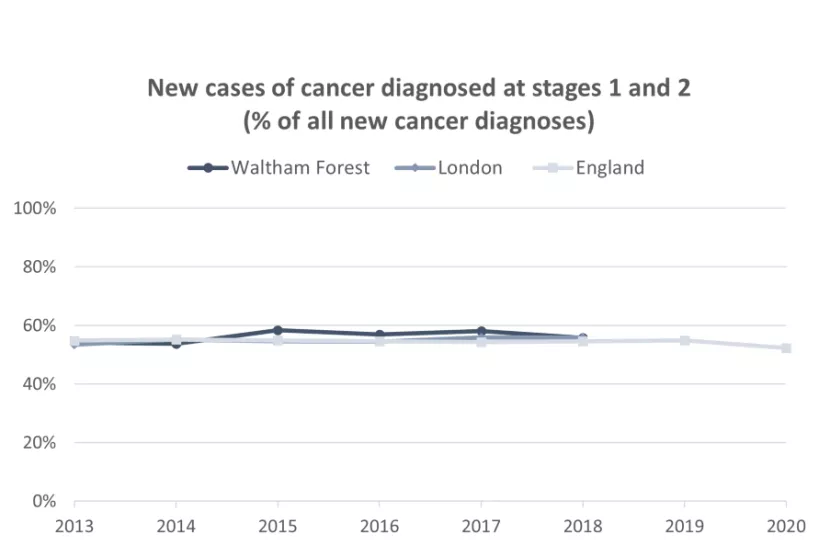Last updated: 31 May 2024
Next review: 1 December 2024
This content is part of the Waltham Forest JSNA. To see other JSNA content, visit the JSNA landing page
Cancer staging is a way of describing how much a cancer has grown and spread by the time it is diagnosed. Cancers diagnosed at an earlier stage (stages 1 and 2) are generally more treatable and have better short- and long-term patient outcomes. Cancers diagnosed at a late stage (stage 3 and 4) are bigger or have spread to other parts of the body and consequentially patient outcomes in these cases tend to be worse.
Between 2015 to 2018, the proportion of cancers diagnosed early (at stage one or two) in Waltham Forest remained consistent. In 2018, the rate in Waltham Forest was 55.8%, similar to the London average of 55.9%, and the national average of 54.5%.
Due to higher levels of missing data about at the stage of cancer diagnosis in 2019 and 2020, local and regional data for this indicator does not extend beyond 2018.

Source: OHID Public Health Outcomes Framework. Data from NHS Digital’s National Disease Registration Service. Date accessed: 27 April 2023.
Note: The 2019 and 2020 data at local authority and regional level not published for data quality reasons.